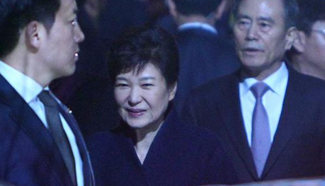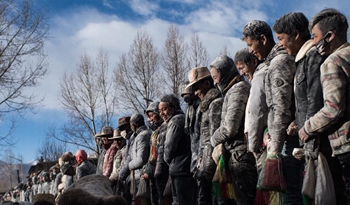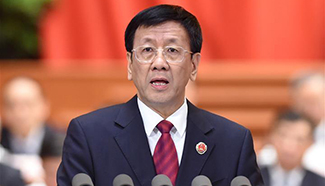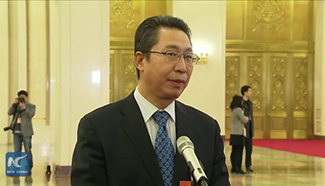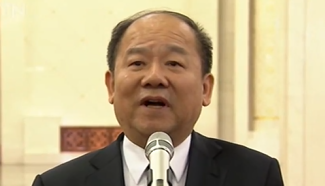BEIJING, March 13 (Xinhua) -- Chinese working mothers are pleased with the proposal to provide public nursery services during the annual two sessions.
The proposal states that financial support for public nursery services and private investment in the sector must be encouraged.
"I am now looking for a qualified nursery for my two-year-old son as his grandma can no longer take care of him due to poor health," said Bi Huahua, who works for a foreign enterprise in Beijing.
"Public kindergartens usually take children who are above three years old, but can't wait another year," she added.
A lack of eligible people to take care of children has become a common headache for working parents in big cities, such as Beijing, Shanghai, Guangzhou and Shenzhen
"A qualified nursery will help working moms to balance their lives, and I am really looking forward to that," posted WeChat user Nuannuanma.
"Professional nurseries will help to reduce quarrels with our mothers-in-law as we sometimes disagree on how to raise a child, and developed countries already provide such services," posted Iqsi on Weibo, a Twitter-like service.
China implemented the one-child policy in the late 1970s to rein in a surging population.
In order to cope with an aging society, since Jan. 1, 2016, married couples have been allowed to have two children. This follows an easing of the one-child policy in 2013 that allowed couples to have a second child if either parent was an only child.
However, according to a survey of 10,000 families with children under 15 years old by the All-China Women's Federation in December last year, 53.3 percent of one-child families do not want a second child.
Another survey, by the National Health and Family Planning Commission in 2013 and 2015, showed that there were three main factors affecting willingness to have a second child: women's career development, insufficient child-care resources, especially for toddlers, and financial considerations.
In an effort to support the two-child policy, China has promised to provide 89,000 more maternity beds as well as 140,000 more obstetricians and midwives by 2020.
"The government is considering a tax deduction for two-child families," said Finance Minister Xiao Jie at a press conference during the two sessions.





